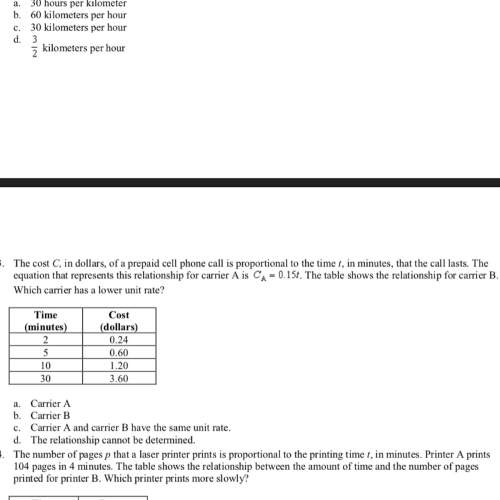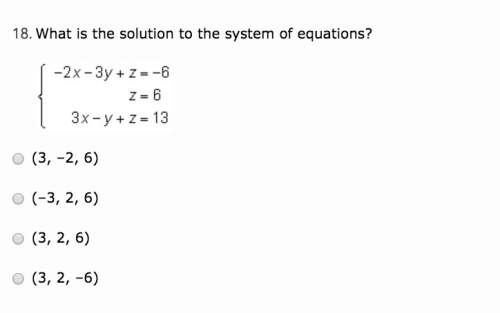
Mathematics, 22.05.2020 06:03 MariaGuerra
Consider the infinite geometric series 1/2+1/6+1/18+1/54+1/162+ . . .. Find the partial sums Snfor n=1,2,3,4, and 5. Round to the nearest hundredth. Then describe what happens to Sn as n increases. S1=

Answers: 1


Other questions on the subject: Mathematics

Mathematics, 21.06.2019 14:10, uhhgray
Students are given 3 minutes for each multiple-choice question and 5 minutes for each free-response question on a test. there are 15 questions on the test, and students are given 51 minutes to take it. how many multiple-choice questions are on the test?
Answers: 1


Mathematics, 22.06.2019 00:30, dogsb4doods
Bocephus has a bag full of nickels and dimes. if there are 3 times as many dimes as nickels, and he has $\$36.05$ in his bag, how many nickels does he have?
Answers: 1

Mathematics, 22.06.2019 03:50, xelynncaldera
This stem-and-leaf plot represents the heights of the students on ralph’s basketball team. one student’s height is missing from the plot. if the mean height of all the students on the team is 61 inches, what is the missing height? a. 55 in. b. 59 in. c. 61 in. d. 65 in.
Answers: 1
You know the right answer?
Consider the infinite geometric series 1/2+1/6+1/18+1/54+1/162+ . . .. Find the partial sums Snfor n...
Questions in other subjects:

English, 24.04.2020 15:24



English, 24.04.2020 15:24


History, 24.04.2020 15:24

History, 24.04.2020 15:24

Mathematics, 24.04.2020 15:24

Mathematics, 24.04.2020 15:24






